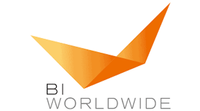Expert view: The evolution of rewards and recognition - from gift cards to culture and purpose
The employee rewards and recognition space has undergone a remarkable transformation.
What began as simple gifting and anniversary awards has evolved into a sophisticated ecosystem of empowering connections across the world and the development of digital vouchers, mobile wallets and now, most importantly, highly personalised rewards.
The desire to positively influence human behaviours in the workplace has seen a revolution in the way that rewards and recognition are viewed because they can now be directly linked back to company goals and the culture of an organisation.
A colleague of mine was recently asked what rewards should be used if you want to keep recognition costs low.
His answer was that the most expensive recognition programme any company can have is one that doesn’t deliver a business result.
From transactional to transformational
There was a time when recognition programmes were largely transactional, often with layers of control, approvals and a keen eye on keeping costs down.
These methods, while appreciated, often missed the mark in terms of personal relevance and their ability to influence business results.
As technology advanced and new generations entered the workforce so did the expectations of those receiving these rewards.
The introduction of digital platforms enabled real-time, peer-to-peer recognition, making it possible to celebrate achievements as they happened and to tailor rewards to individual preferences.
Today, employees expect more than a gift card or generic perk, they want to feel truly appreciated and to be offered rewards that also speak to their own personal values and preferences.
Accommodating these needs means a shift that is more than just a nod to employee satisfaction.
It’s not enough to just say you have a recognition programme, a technology platform and a load of gift cards; you need to consider a recognition programme as a strategic move that boosts engagement, motivation and retention.
Aligning rewards with business goals and behaviours
Is modern recognition just about celebrating achievements?
Increasingly, the answer is no.
Companies are using rewards not only to recognise individual accomplishments but to reinforce the key behaviours and cultural attributes they want to see flourish.
The goal has to be one that fosters the values and behaviours that will deliver real business results.
The structure of reward and recognition can help shape the DNA of an organisation.
For example, if collaboration is a core value, reward frameworks might be designed to celebrate team impact rather than just individual performance.
If innovation is prized, risk-taking and experimentation could be explicitly promoted and recognised even if the results aren’t immediate.
In this way, rewards become a lever for culture transformation, helping to align everyday actions with long-term business objectives.
The role of behavioural economics
The science behind these strategies is rooted in behavioural economics, which recognises that people are not always rational beings but are influenced by biases, emotions and social cues.
Nobel prize-winner Richard Thaler and co-author Cass Sunstein’s seminal work, Nudge: Improving Decisions about Health, Wealth, and Happiness shows that emotion will often override rationality in decision making.
Whilst receiving a £100 gift card might give instant gratification and seem a logical choice, receiving tickets to a show that you desperately want to see will easily lead to greater engagement and an emotional connection that drives greater business results.
By harnessing these and other insights, companies can design recognition programmes that do more than just tick a box or acknowledge effort, they can actively drive the behaviours that underpin business success.
This approach taps into the deeper psychological drivers of motivation and engagement.
Reward trends
Looking at the market today, there are several trends that companies should be considering when looking at a rewards and recognition programme:
Personalisation: Employees want rewards that feel meaningful and relevant to them.
Sustainability: There’s a growing demand for rewards that reflect social and environmental values, such as charitable donations or eco-friendly gifts.
Generational differences: Millennials are now the largest part of the workforce at 36% with KPMG estimating this will grow to 50% over the next couple of years. Studies suggest they are less likely to want ‘stuff’, preferring experiences, learning opportunities, doing good by the environment and supporting good causes ranking most highly.
Transformative power of recognition and rewards
The evolution of rewards and recognition is a testament to the enduring power of human behaviour.
While the tools and technologies have changed, the underlying goal remains the same: to create a culture where people feel valued, motivated and aligned with the organisation’s purpose.
By centring rewards on behavioural insights and business goals, companies can build workplaces that are not just productive but truly transformative.
Supplied by REBA Associate Member, BI WORLDWIDE
BI WORLDWIDE is a global engagement agency delivering measurable results for clients through inspirational employee and channel reward and recognition solutions.








